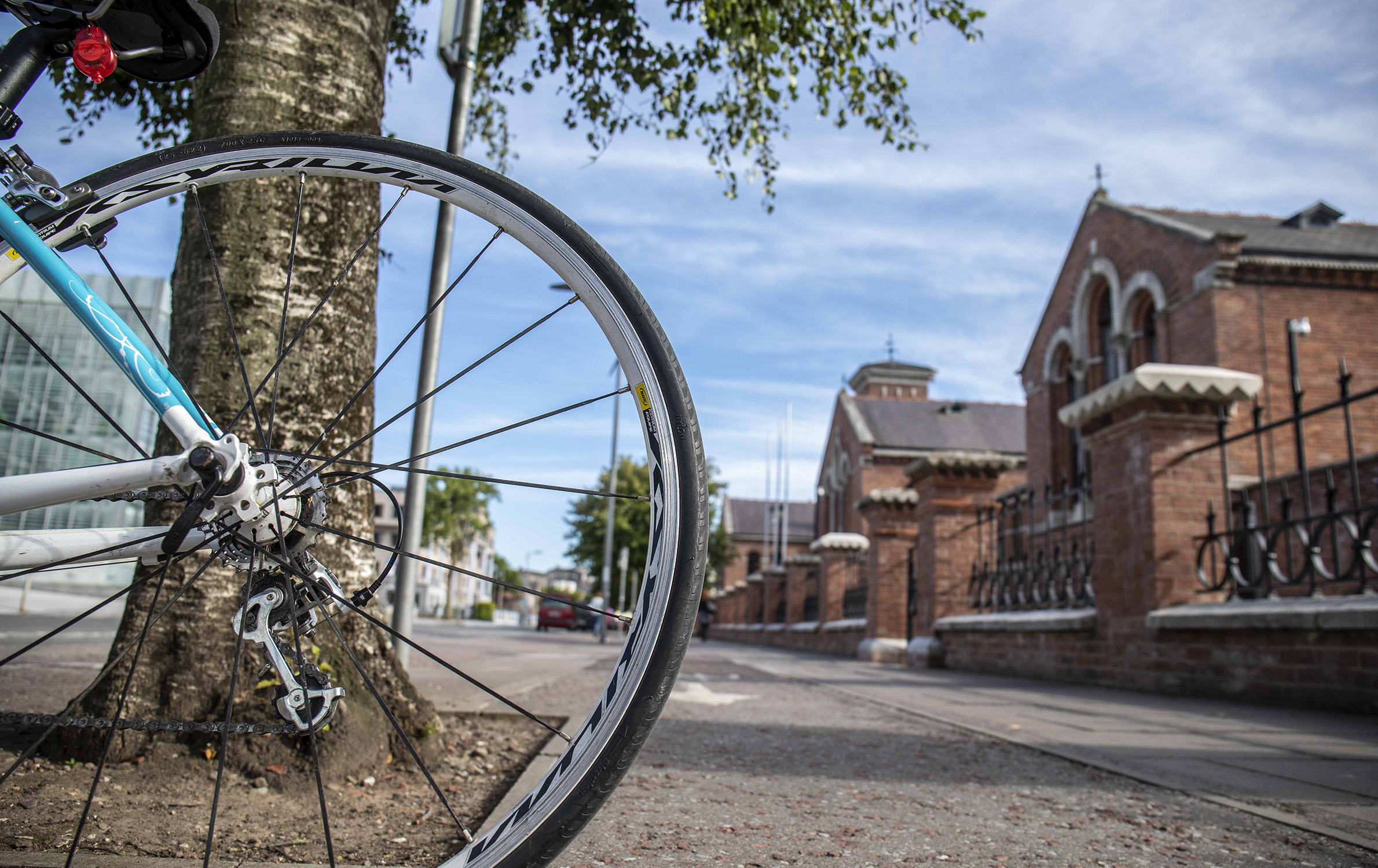By fully assessing local issues and identifying the most effective measures to achieve behavioural change and drive carbon reduction, SYSTRA’s capability in Transport Demand Management can help local authorities improve air quality, reduce congestion and tackle climate change in their towns, cities and regions.
Changing travel behaviour patterns to combat climate change
Initiatives to manage travel demand and reduce the use of carbon-emitting modes of transport are an important element in local authority responses to climate challenges and specific declarations of Climate Emergency. Transport Demand Management (TDM) involves the application of strategies and policies to reduce transport demand, or to redistribute it in space, mode or time.
Effective Transport Demand Management involves encouraging people to change behaviour, implementing demand management measures such as low emissions zones or charging schemes. Attempts to change transport usage often come up against opposition, particularly where changes are enforced by new restrictions on car usage or where new charging mechanisms are introduced. Any TDM scheme involves trade-offs between convenience, accessibility, road safety and air quality – and these can be difficult for local authorities to articulate. Financial constraints are another major sticking point, with limited funding sometimes resulting in poorly configured schemes that can damage the reputation of Transport Demand Management.
SYSTRA has the expertise to support demand management strategy development, with a track record covering personalised travel planning, active mode incentive schemes, road space reallocation and road charging schemes to deliver key transport objectives.
our experience
Discover how SYSTRA provides expert insight and advice to support decision making, policy development and strategy.

SYSTRA has the transport planning skills and experience to help local authorities and regional transport bodies develop well-planned, workable and sustainable Transport Demand Management schemes.
Our experience includes developing and delivering wide-ranging demand management strategies, as well as creating individual demand management components to support wider transport, development and land-use strategies.
Consultation to gain stakeholder support
With our in-house research capabilities, we can consult members of the public, businesses and wider stakeholders impacted by any travel demand management scheme. That can help to achieve essential buy-in and support from local stakeholders, helping to address objections and ensure schemes to meet local aims and objectives. By fully understanding the issues and impacts of any scheme, we can help to ensure that new initiatives are properly justified and accurately marketed to those people affected. Reducing opposition and misinformation about TDM schemes is a significant factor in successful implementation.
Business cases articulate the benefits
To back up our research capabilities, we have wide-ranging expertise in developing and delivering business case and funding submissions. We can help to produce the cases for Transport Demand Management schemes that clearly identify and articulate the outcomes and impacts of new transport initiatives – including the social, economic and environmental benefits, and implications for different stakeholders or communities.
Tackling congestion, air quality and climate change
Our Transport Demand Management schemes draw on multiple measures and tools to find the best solution for each client. These measures are designed to help achieve changes in road usage, reduce demand at certain times or in specific places, or shift road users onto active or low-carbon modes of transport. They include:
- Behavioural change initiatives: workplace travel plans, school travel plans, personalised travel plans, car pools, bike share or lift-share schemes – to ease congestion and reduce emissions.
- Sustainable travel infrastructure: Low Traffic Neighbourhoods (LTN), shared-spaces, active mode infrastructure and facilities, improved public transport and park & ride services – to increase public transport patronage and improve air quality.
- Network efficiency: speed management, improved signal control, hotspot management, capacity creation and parking enforcement – to improve traffic flows and road safety.
- Charging: Road User Charging (RUC), Congestion Charging, Workplace Parking Levies (WPL), parking management and emissions-related charging (Low Emission Zones/Ultra-Low Emission Zones) – to shift transport away from congested areas and reduce air pollution.

AREAS OF EXPERTISE
- Behavioural change initiatives
- Sustainable travel infrastructure
- Network efficiency measures
- Charging schemes
Trusted expertise in Transport Demand Management
As leaders in the field of transport advisory, design and delivery services, our specialists understand the latest developments in TDM. These include new innovations in linking services to encourage behavioural change – such as Mobility as a Service (Maas) and similar measures. Clients also benefit from associated professions and resources across SYSTRA, including strategy development and engineering design services for road, rail and active transport modes.
How can our experts help?
you may also like

Find out what its like to work at SYSTRA, rewards, benefits and about different career pathways including apprenticeships and graduate opportunities.
 Australia
Australia  Brazil
Brazil  Canada
Canada  China
China  Denmark
Denmark  France
France  India
India  Indonesia
Indonesia  Ireland
Ireland  Italy
Italy  Malaysia
Malaysia  New Zealand
New Zealand  Norway
Norway  Poland
Poland  Saudi Arabia
Saudi Arabia  Singapore
Singapore  South Korea
South Korea  Sweden
Sweden  Taiwan
Taiwan  Thailand
Thailand  United States
United States  Vietnam
Vietnam 

